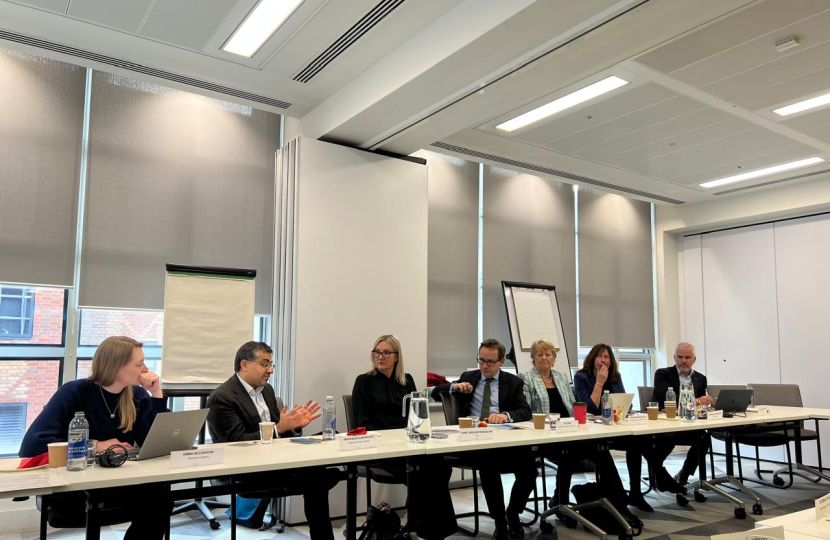
Dame Caroline Dinenage, Member of Parliament for Gosport and Chair of the newly-established Children and Young People Cancer Taskforce, has welcomed the arrival of a drug combination treatment that will improve the length and quality of life for children and young people with cancer.
Today (Wednesday, 24 April) the National Institute for Health and Care Excellence has recommended that dabrafenib be taken in combination with trametnib to treat BRAF V600E mutation-positive glioma, the most common type of brain cancer in children and young people.
The treatment, which has been described as a ‘step-change in care’ for children and young people with brain cancer, can be taken at home rather than in hospital. It is estimated that around 30 children in England could be eligible.
This follows the opening “sprints” of the Children and Young People Cancer Taskforce in March, which were held to bring together a wide range of stakeholders in the childhood cancer field, from science and research to medicine and industry. These sprints saw themes ranging from genomics and detection to research and treatments discussed, after the Taskforce was established in February with the aim of driving forward progress in tackling cancer in children and young people.
Gliomas are the most common type of brain cancer in children and young people, but current treatments are limited. It is classified as either low-grade glioma (LGG), where tumours do not grow or grow slowly, or high-grade glioma (HGG), where tumours grow more rapidly and is usually fatal.
NICE’s independent appraisal committee were told that treatment for a potentially life-threatening brain tumour glioma can delay children’s education, restrict socialising, and have a lasting emotional impact. They highlighted the side effects of chemotherapy, which can include weight loss, seizures, and headaches can lead to people with glioma and their caregivers choosing to stop treatment.
The drug combination can be used by patients with LGG who are eligible for systemic treatment or for patients with HGG who have received at least one course of radiation or chemotherapy treatment.
Clinical trials show the new treatment stalls the tumour growth in people with LGG for an average of more than two years – three times longer than current drugs.
Dame Caroline Dinenage, Chair of the national Children and Young People’s Cancer Taskforce said:
“This is such good news for children and their families with this diagnosis. The effect of this terrible disease on young patients and their families is utterly devastating, and I’m delighted that there is now more hope for them.
“We continue to work to implement improvements in diagnosis and care for these patients, and need to deliver more for them.”
Helen Knight, director of medicines evaluation at NICE, said:
“Diagnosis of a glioma brain tumour, which is often fatal for people with advanced high-grade glioma, can have a devastating impact on children and their families. Treatment options are limited, and we know they can be brutal.
“I am pleased we can recommend this new combination therapy that can give children longer without their tumour growing and offers them and their families a better quality of life.
“NICE is determined to get the best care to patients fast and ensure value for the taxpayer. This recommendation follows the licensing of both treatments for this type of cancer within the last three months.”
Professor Peter Johnson, NHS National Clinical Director for Cancer, said:
“It is fantastic news that this new and kinder precision treatment for children and young people with this type of brain tumour will now be available on the NHS – it is a significant step forward in treatment that has been shown to be easier to take than chemotherapy and very effective in blocking the growth of the disease, helping children have a better quality of life for longer.”
Health Minister, Andrew Stephenson said:
“A child’s cancer diagnosis is devastating news for any family to process. This recommendation from NICE means eligible children will now be able to access an innovative, life-extending treatment.
“We want to improve outcomes for brain cancer patients and have provided £40 million for research projects to help do so. These collective steps show the importance of harnessing the latest treatments to improve outcomes for patients, including those with glioma diagnoses.”
ENDS
For more information contact [email protected]
